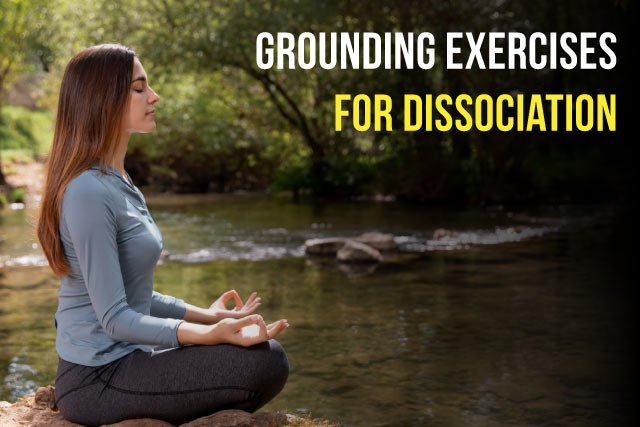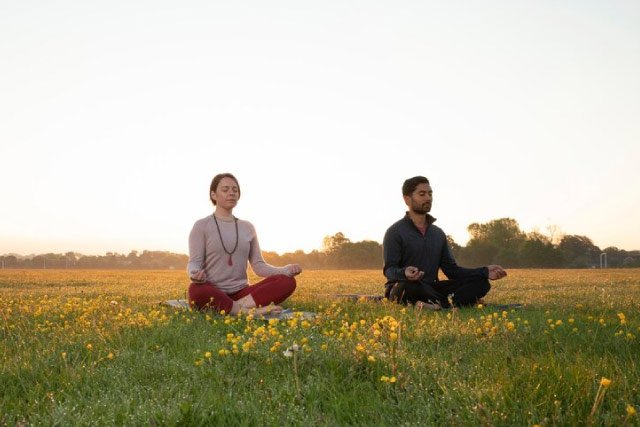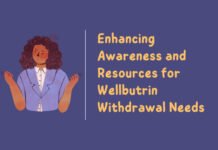
In the hustle and bustle of modern life, many individuals grapple with dissociation—a state where they feel disconnected from their thoughts, emotions, or surroundings. Acknowledging the significance of addressing dissociation, this article delves into effective grounding exercises. These exercises act as anchors, helping individuals reconnect with the present moment and regain control over their mental well-being.
1. Understanding Dissociation

1.1. Definition of Dissociation
Dissociation is a psychological phenomenon characterized by a disconnection between thoughts, identity, consciousness, and memory. Often, it serves as a coping mechanism in response to trauma or overwhelming stress.
1.2. Common Causes
Understanding the root causes of dissociation is crucial. Trauma, anxiety disorders, and certain medical conditions are frequent contributors to this phenomenon.
1.3. Recognizing Dissociative Symptoms
Identification of symptoms such as memory lapses, feeling detached, or losing track of time is essential for early intervention and support.
2. Impact of Dissociation on Well-being

2.1. Mental Health Implications
Untreated dissociation can lead to severe mental health issues, including depression, anxiety disorders, and difficulties in maintaining relationships.
2.2. Effects on Daily Life
Daily functioning may be compromised, affecting work, relationships, and overall quality of life. Seeking professional help is essential for long-term well-being.
2.3. Seeking Professional Help
Consulting with mental health professionals, such as therapists or psychologists, is vital for tailored treatment plans and support.
3. What Are Grounding Exercises?

3.1. Definition and Purpose
Grounding exercises aim to anchor individuals in the present moment, preventing dissociation by fostering awareness and connection.
3.2. How Grounding Exercises Work
These exercises engage the senses, redirecting attention away from distressing thoughts and bringing focus to the immediate surroundings.
3.3. Types of Grounding Techniques
Various techniques include mindfulness, sensory exercises, guided imagery, and physical activities like running and yoga, providing diverse options for individuals to find what works best.
4. Grounding Techniques for Dissociation

4.1. Mindfulness and Deep Breathing
Mindfulness and deep breathing exercises help center the mind, fostering a connection to the present.
4.2. Sensory Grounding Exercises
Engaging the senses—sight, touch, sound, smell, and taste—can effectively ground individuals, providing a tangible connection to reality.
4.3. Guided Imagery
Visualizing calming scenarios or guided scripts assists in redirecting focus and easing the mind.
4.4. Physical Grounding Activities
Incorporating physical movements, such as tapping or stretching, can reconnect individuals with their bodies and surroundings.
5. Incorporating Grounding Exercises into Daily Life

5.1. Creating a Personalized Grounding Routine
- Identify Preferred Techniques: Explore different grounding exercises to find those that resonate with you.
- Set a Schedule: Establish a consistent time for grounding exercises, making them a part of your daily routine.
- Adapt to Preferences: Modify exercises to suit personal preferences, ensuring a more enjoyable practice.
5.2. Integrating Grounding into Stressful Situations
- Identify Triggers: Recognize situations that may induce dissociation.
- Preemptive Grounding: Practice grounding exercises proactively, especially before known stressors.
- Quick Techniques: Use quick grounding techniques for on-the-spot use during stressful moments.
5.3. Consistency and Practice
- Start Small: Begin with shorter sessions and gradually increase the duration.
- Track Progress: Keep a journal to track your experiences and improvements.
- Celebrate Milestones: Acknowledge and celebrate your progress, fostering motivation for consistent practice.
6. Real-life Success Stories

6.1. Testimonials from Individuals Using Grounding Exercises
- Personal Narratives: Real accounts from individuals who have successfully incorporated grounding into their lives.
- Diverse Experiences: Highlight various backgrounds and situations to resonate with a broader audience.
6.2. Positive Outcomes and Improved Well-being
- Enhanced Emotional Regulation: Discuss how grounding contributes to better emotional regulation.
- Improved Focus and Clarity: Explore how grounding exercises enhance mental clarity and focus to stay healthy.
6.3. Encouragement for Others to Try Grounding Techniques
- Empathy and Understanding: Address the initial challenges individuals might face.
- Highlighting Benefits: Emphasize the positive impact on mental health and overall well-being.
7. Common Challenges and Solutions

7.1. Overcoming Resistance to Grounding
- Acknowledge Resistance: Understand that resistance is normal and part of the process.
- Identify Underlying Causes: Explore the reasons behind resistance and address them gradually.
7.2. Adapting Exercises to Individual Preferences
- Flexibility in Techniques: Emphasize that there’s no one-size-fits-all approach.
- Encouraging Exploration: Encourage individuals to experiment with different techniques to find what suits them best.
7.3. Staying Committed to the Practice
- Setting Goals: Establish realistic and achievable goals for consistent practice.
- Building a Support System: Seek support from friends, family, or online communities to stay motivated.
8. Expert Tips on Effective Grounding

8.1. Insights from Mental Health Professionals
- Importance of Professional Guidance: Emphasize the role of mental health professionals in tailoring grounding techniques.
- Integration with Therapy: Discuss how grounding can complement traditional approaches such as green therapy.
8.2. Tailoring Exercises to Specific Dissociative Symptoms
- Understanding Individual Needs: Highlight the necessity of adapting exercises based on the nature of dissociative symptoms.
- Consulting Professionals: Encourage seeking guidance from mental health professionals for personalized strategies.
8.3. Combining Techniques for Enhanced Effectiveness
- Holistic Approach: Advocate for combining multiple grounding techniques for a more comprehensive approach.
- Experimentation and Exploration: Encourage individuals to explore combinations that work best for them.
Conclusion
In conclusion, grounding exercises offer a powerful and accessible way for individuals to manage dissociation. These techniques improve mental health and overall well-being by fostering a connection to the present moment. We hope this comprehensive guide inspires you to explore and incorporate grounding exercises into your daily routine.
FAQs
What is Dissociation?
Dissociation is a psychological phenomenon where an individual disconnects from thoughts, feelings, or surroundings as a coping mechanism.
Can Grounding Exercises Replace Professional Therapy?
While grounding exercises are beneficial, they complement rather than replace professional therapy. Consultation with mental health professionals is crucial for comprehensive treatment.
How Long Does It Take to See Results from Grounding?
Individual experiences vary, but consistent practice over time increases the effectiveness of grounding exercises. Patience is key.
Are There Specific Exercises for Different Types of Dissociation?
Yes, tailoring grounding exercises to specific dissociative symptoms is essential. Mental health professionals can guide suitable techniques.
Can Grounding Techniques Be Used Preventively?
Absolutely. Integrating grounding exercises into daily life, especially during non-stressful times, can be a preventive measure against dissociation.








